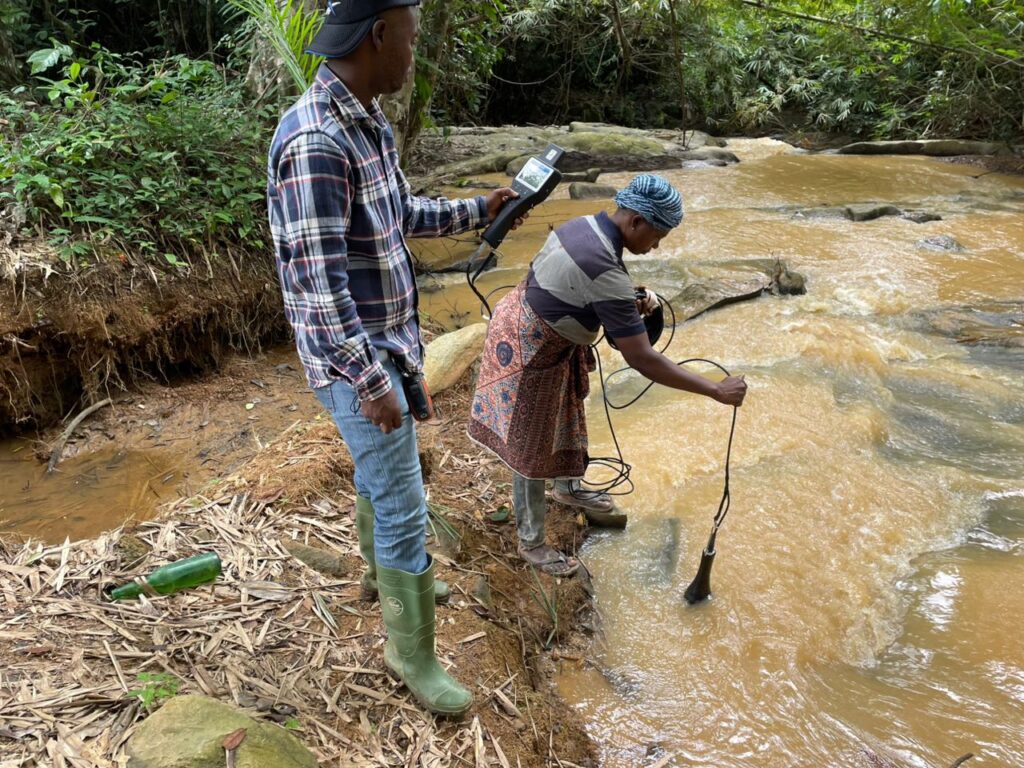By Gideon Amuah | Email – gideon.amuah@gmail.com
The fight against galamsey cannot be won by government alone. It must be fought in every village, every community, and every conscience. The destruction of Ghana’s rivers and farmlands is not just a failure of policy—it is a failure of collective responsibility. Every citizen who drinks water, eats food, or depends on the land has a stake in this battle. And if we remain silent while our rivers turn brown, we become accomplices to our own hunger.
The government can deploy soldiers, pass laws, and ban machinery, but lasting change begins at the grassroots. Illegal mining thrives because it finds protection and silence among us. Chiefs look the other way, assembly members hesitate to report offenders, and communities quietly accept money to allow miners to work. Some traditional leaders have even leased lands to galamsey operators under the cover of “community development.” When the guardians of the land turn into brokers of destruction, the chain of accountability breaks.
Traditional authorities hold the key to reversing this. For centuries, Ghana’s chiefs and elders served as custodians of the environment—protecting rivers, forests, and sacred groves. The land was not merely property; it was heritage. Today, that sense of stewardship must return. Chiefs can lead the fight by refusing to grant land to illegal miners, by publicly naming and shaming offenders, and by working with district assemblies to enforce bylaws that protect water bodies and farmlands. The National House of Chiefs can also play a national advocacy role, declaring river protection zones and supporting reclamation programs.
Citizens, too, must rise from apathy. The average Ghanaian may not own a mine, but we all consume the consequences—polluted water, expensive food, and degraded soils. Communities must organize to monitor and report illegal activities through local watchdog committees. Farmers’ groups can join with civil society to demand transparency from local authorities. Students, journalists, and faith-based organizations can use their voices to expose the destruction and remind the nation of what is at stake. A clear river is a human right, not a privilege.
The media’s role is equally vital. Galamsey stories must not fade with political cycles. Journalists and documentary makers must keep the spotlight on the rivers—the Birim, Offin, Pra, Ankobra—that now carry the color of despair. Continuous reporting creates pressure, and pressure brings action. The conscience of a nation is shaped by what it refuses to normalize.
At the community level, innovative programs can turn former galamsey zones into green corridors of recovery. Youth cooperatives can be trained in reforestation, aquaculture, and sustainable farming. Mining pits can be converted into irrigation reservoirs or fishponds. If given incentives and technical support, local communities can transform the scars of destruction into hubs of production.
Faith institutions also have a moral responsibility. Churches, mosques, and traditional councils must preach environmental stewardship as a sacred duty. The scriptures of every faith teach that humans are caretakers of the earth, not its destroyers. A sermon can change a mindset faster than a police raid.
Ending galamsey is not only about enforcing laws—it is about restoring the moral contract between Ghanaians and their land. The river that feeds your field, the soil that grows your yam, the forest that shades your cocoa—these are not resources to be sold; they are inheritances to be preserved.
Every Ghanaian must decide: Do we want to be remembered as the generation that watched the rivers die, or the one that made them live again? The choice is ours, and the time is now.


